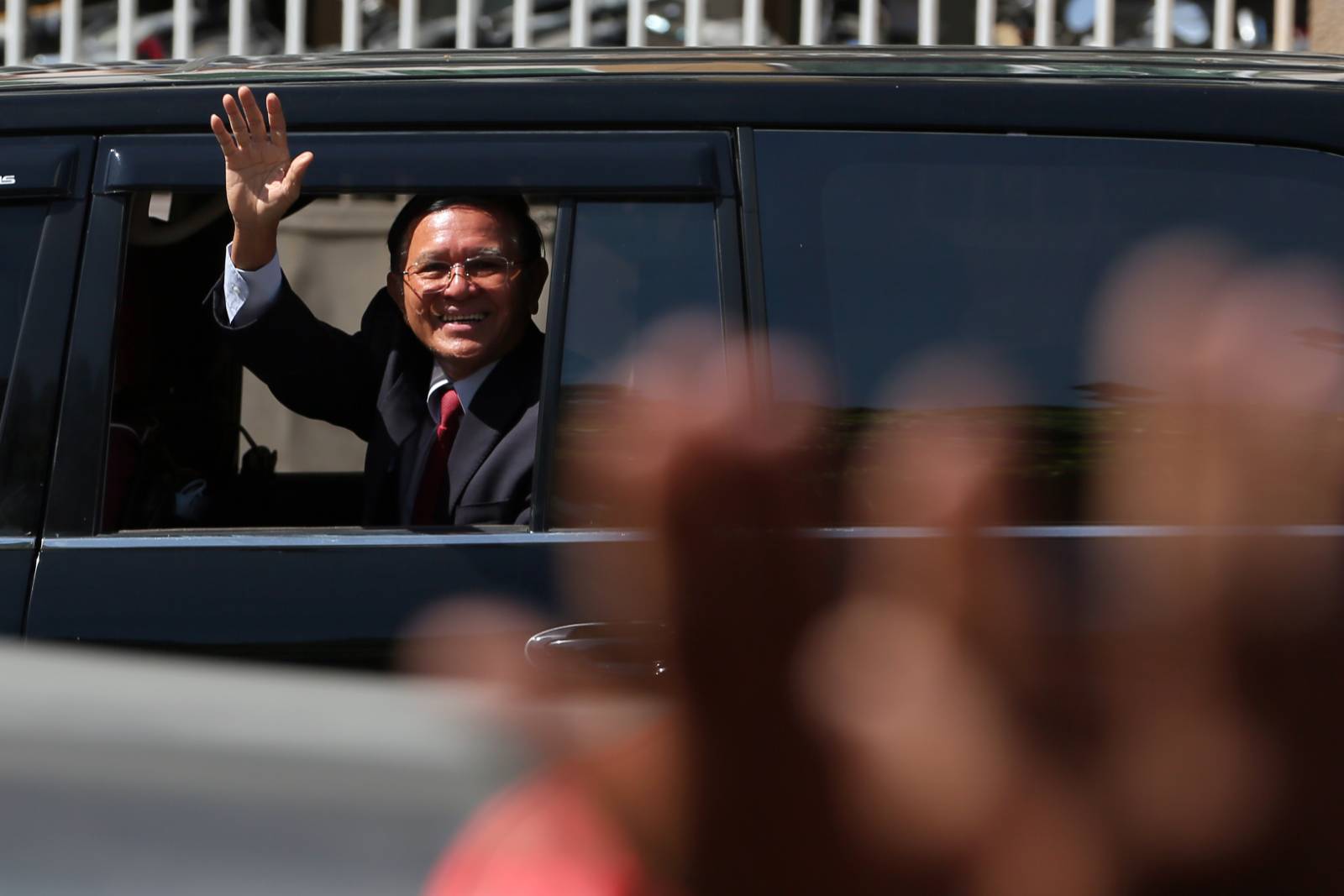After three years of trial hearings — and five years since Kem Sokha was arrested — closing arguments in the opposition leader’s protracted treason trial were squeezed into one day of hearings.
The final session in the case lasted past 9 p.m. Wednesday as the presiding judge finally scheduled a verdict announcement for March 3. The Phnom Penh Municipal Court courtroom was packed with almost 50 participants and observers, bringing down the curtain in a trial that began at the start of 2020.
As president of the country’s main opposition Cambodia National Rescue Party, Sokha was arrested in a midnight raid on his home on September 3, 2017, and his party disbanded two months later. The country was left without a viable opposition, and Prime Minister Hun Sen’s ruling Cambodian People’s Party swept all 125 parliamentary seats in national elections the year after.
Sokha is accused of treason — colluding with a foreign power to bring down the government — in the country’s major political trial that lies behind Cambodia’s so-called “death of democracy.”
Covid-19 delays suspended the trial through all of 2021 before resuming on January 19 this year.
Wednesday’s hearing began at 8:30 a.m. and — barring a 90-minute lunch break — continued until about 9:10 p.m.
The morning was dominated by government lawyers, who had submitted a 86-page defense to the court, and who indicated they would file a civil lawsuit against Sokha after the criminal case ended.
The prosecution and defense followed with their closing cases in the afternoon, with prosecutors calling for “serious” punishment and for Sokha to permanently lose his rights to participate in politics. They said he should be sent back to jail.
The defense — spending almost five hours making their case through the evening — cast doubt on the prosecution’s evidence, saying videos had been cut and edited, and no evidence was presented of Sokha actually colluding with foreign powers. Defense lawyers had submitted a 53-page case to the court.
As the hearing dragged into the evening, the public gallery — made up of reporters, embassy staff, rights groups and other observers — grumbled over the extended hearing, looking at one another unsure how long it would go on. The presiding judge explained that he wanted to be fair to each party and give them time to present their cases.
Finally, Sokha asked the court to drop the charges against him “so that I can go back to serving the country.”













